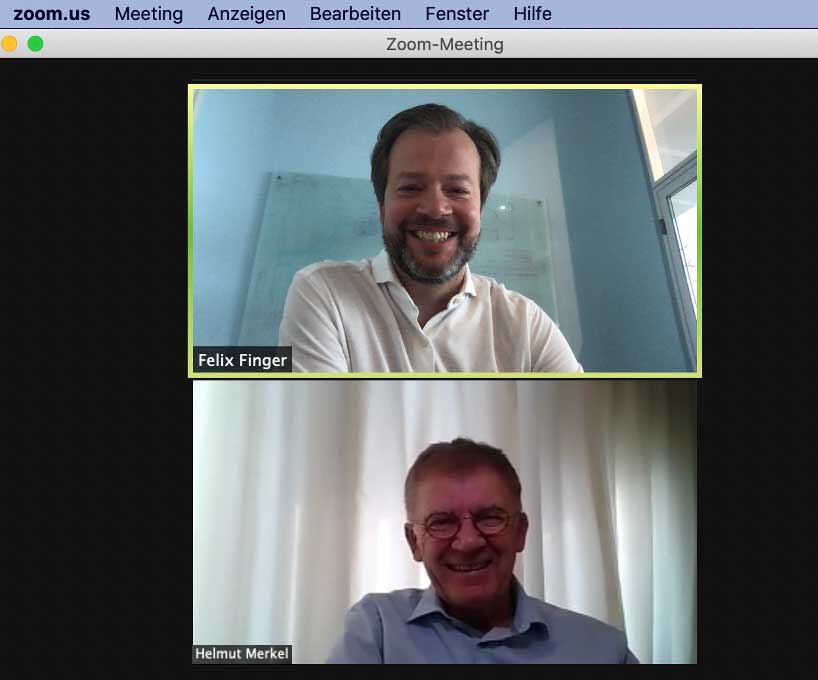
Retailers and consumer goods manufacturers must focus on new core competencies.
While brand manufacturer have recently built up more and more of their own distribution channels, retailers with private labels have developed more and more robust supply chains – and thus aligned their business models. Today, digital distribution channels, modern logistics and the development of new digital products, services and business models are leading to further increasing complexity for both industries. Prof. Dr. Helmut Merkel, Chairman of the Advisory Board of the management consultancy Brook Valley and former CEO of Karstadt and international managing director at Deichmann, Hong Kong and Baden-Baden, and Felix Finger, Founder and Managing Partner of Brook Valley, Düsseldorf, advise: “Instead of continuing to build up competencies, they must primarily focus more strongly.
The Corona crisis is shaking up the retail and consumer goods industry. Where do the industries stand today?
Prof. Helmut Merkel: The current situation shows relatively clearly the winners and losers. The winners are primarily those who have built up strong brands – either as producers or as retailers. For the producer, this brand development includes the development of their own stationary and digital distribution channels to the end customer. And for the retailer, this means having set up an optimal supply chain that makes private labels available reliably and in high quality. This was a major challenge for everyone, as both manufacturers and retailers have each started to integrate the other’s business model into their own value chain.
Felix Finger: This has increased the complexity for these companies many times over. And some have gone even further: They have already combined direct sales channels with additional digital services in the past. For example, not only is the kitchen appliance sold, but the digital recipe subscription is also sold. Those who have proceeded in this way are still in a comparatively good position in the crisis. Anyone who has not done all this is threatened by a simultaneous liquidity, transformation and therefore complexity crisis.
Prof. Helmut Merkel: It is already clear. Many people will be overwhelmed by this, and not everyone will make it through the crisis and the post-crisis period. The first victims are already known to the public – these are often companies on whose structural crisis Corona has now acted like an accelerant. Those who want to make it must now tackle their deficits immediately and decisively.
Felix Finger: What will be important in the future: individual customer needs, much faster availability – for example, same-day delivery and a redefinition of digital services around the products sold. Anyone who cannot deliver will disappear from the market.
What does that mean in concrete terms?
Prof. Helmut Merkel: In Hong Kong as well as in China, you can shop in food retailing between 8 a.m. and 10 p.m. and have your purchases delivered directly to your home at no extra cost. One example: With Sun Art Retailing, Alibaba has now acquired 72 percent of a hypermarket chain from Auchan Holding, which has 484 stores in China. Orders can be placed online or on site at the store. Delivery is either a premium service within one hour or a standard service within half a day. Payment is made digitally via smartphone. Another example: Every pharmacy in the neighborhood, no matter how small, now has a ‘Home Delivery Service’. On the one hand, this means much greater proximity to the customer, and on the other hand, the establishment of efficient and speedy logistics, which they do not have to operate themselves. Many large online platforms offer small neighborhood retailers the opportunity to use their services – from customer analysis and cashless payment to premium delivery.
German companies have already struggled with this. How should this succeed in the broad scale in near future – especially as the corona crisis is having a massive impact on companies?
Felix Finger: Quite clearly – some will not make it. Perhaps they will live longer due to a favorable interest rate environment and government assistance. If you don’t want to disappear from the market, you have to face the challenge now. And that means dealing with an enormous increase in complexity. My advice is that companies must redefine their core competencies and focus precisely on them.
‘Refocus’ – that’s a typical consulting term. But what exactly does that mean? And how is this to be achieved?
Felix Finger: You have to ask yourself the questions: What are the value creation stages of my company today and how do I want to develop them? What will my business model look like in 5 years? Technologies can help to digitize value-added stages and generate value and margins from new digital products. Especially in times of massive overstocks and uniform products in the market, the margin should not only be a result of buying and selling goods. The major online retailers are already embarking on this path and transforming themselves again.
Prof. Helmut Merkel: These strategic questions are absolutely relevant. When it comes to operations, one thing is immediately clear: the new goals can only be achieved with scalable organizational forms and digital technologies. And that is still a challenge, especially for many small and medium-sized companies. For almost twenty years now, SMEs in the manufacturing industry have been demonstrating how “specialization” works and, for example, supplier networks in the automotive industry have been taking over up to 85 percent of the vertical integration. Only with specialists can innovation be accelerated. It is not for nothing that Germany is the most innovative economy in the world according to a current Bloomberg ranking.
Felix Finger: It is difficult for many companies in the retail and consumer goods industry to develop innovative digital business models. Most of them have an IT department that focuses on internal merchandise management and supply chain applications. Only a few digital solutions offered today create real added value for the customer and can be agilely aligned. A retail company must focus on its core competencies when shaping the digital revolution: Market access and customer proximity. In the future, investments must also be incorporated here.
But how is this ‘digital’ revolution going to succeed? Digital experts are very rare on the market, and the big companies are virtually buying them away. What chance do small and medium-sized companies have?
Felix Finger: That’s true, of course. Competition for digital talent is tough. Many SMEs can’t keep up with it, not only for reasons of attractiveness – they also often lack the financial resources. Or they don’t take up the challenge at all. The CFO then says: “We already spend so much money on our IT department, so let them solve the problem.
Prof. Helmut Merkel: That’s an organizational Achilles’ heel. Companies should ask themselves: What is my future core competence and what does my IT actually achieve? What should it achieve? And they will often come to the answer that IT is primarily concerned with maintaining old application software. So the question must be asked whether you can make the connection to the future with an IT system oriented in this way. It would be better for companies to check now whether it still fits.
Felix Finger: Of course, many of the ‘outputs’ of the IT you have outlined are needed by both retailers and SMEs. However, we as a consulting firm are constantly checking whether IT in its current form is also needed for this. Or whether a form of external solution would be better, especially to obtain scalable services and state-of-the-art IT. At the same time, a review like the one proposed by Professor Merkel also reveals new services that are needed, which could not be provided in the past – and where companies now urgently need to review how they can get them into their own companies.
You raise the issue of outsourcing when it comes to external solutions – this is not particularly new. But the past also shows that this is often not the solution to the problems, and that it creates the problems in terms of quality, availability and other factors.
Felix Finger: That is true, of course. Bad outsourcing does not solve a single problem. But that’s not what I would recommend in principle either. It can be an option that you should always consider. But there are many other options today: Near- and offshoring, for example, is the direct involvement of external teams based abroad. Especially when it comes to IT development and implementation, regions like the Baltic States, Poland and many parts of Asia have excellent technical specialists who speak English. Working together with others, for example in the form of joint ventures, can also help to outsource simpler activities. In each individual case, it is necessary to examine which options make strategic, financial, operational and ultimately cultural sense.
Prof. Helmut Merkel: The more agile the customers, the more agile the companies must become. Old organizational structures no longer stand up to this. Here in Asia it is also perfectly normal to experiment with a variety of external and internal solutions in order to get exactly the know-how and services that are needed right now. I know that German companies are particularly proud of their stability. But stability is a value that can also become a risk when the environment has been accelerated by Covid-19 fluid.
